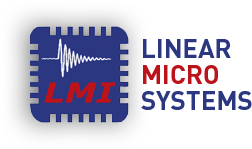SoC in Artificial Intelligence: Powering Machine Learning at the Edge
As artificial intelligence (AI) and machine learning continue to evolve, the demand for efficient and powerful computing solutions has never been greater. One of the most promising technologies in this domain is the System on Chip (SoC), which integrates various components into a single chip to enhance processing power and efficiency. With the rise of edge computing, SoCs are becoming essential for deploying AI applications, enabling real-time data processing and decision-making without relying on cloud resources.
Understanding SoC and Its Role in AI
SoC combines multiple components, including the central processing unit (CPU), graphics processing unit (GPU), memory, and other peripherals, all on a single chip. This integration improves performance, reduces power consumption, and lowers manufacturing costs. In artificial intelligence, SoCs are particularly valuable because they can execute complex algorithms locally, minimizing latency and bandwidth usage.
- Performance Efficiency: SoCs are designed to optimize performance by combining multiple processing units that can handle various tasks concurrently. In AI applications, this is crucial, as machine learning models often require extensive computations and rapid data processing. The parallel processing capabilities of SoCs allow for efficient handling of large datasets, enabling quicker insights and actions.
- Power Consumption: Power efficiency is significant in deploying AI applications, especially in battery-powered devices. SoCs are typically designed with power-saving features, allowing them to operate effectively without draining resources. This makes them ideal for edge devices that balance performance with power consumption.
Edge Computing and the Advantages of SoCs
The shift toward edge computing transforms how AI applications are developed and deployed. Instead of processing data in centralized cloud servers, edge computing enables data processing to occur closer to the source. This reduces latency and bandwidth requirements. SoCs play a crucial role in this transition by providing the necessary computing power in compact, energy-efficient packages.
- Real-Time Decision-Making: With SoCs at the edge, AI applications can analyze and respond to real-time data. For instance, in autonomous vehicles, SoCs process data from various sensors to make split-second decisions regarding navigation, obstacle avoidance, and safety measures. This capability enhances the safety and reliability of AI systems operating in dynamic environments.
- Reduced Latency and Bandwidth Costs: By processing data locally, SoCs help minimize the need for constant communication with cloud servers. This reduces latency—critical for time-sensitive applications—and lowers bandwidth costs. In scenarios where large amounts of data are generated, leveraging SoCs can significantly decrease the reliance on cloud resources and improve operational efficiency.
The Future of SoCs in AI and Machine Learning
As artificial intelligence continues to advance, the role of SoCs in powering machine learning at the edge will only grow. Future developments may include even more specialized SoCs explicitly designed for AI workloads, incorporating dedicated AI accelerators and improved energy efficiency. This evolution will enable a broader range of applications, from smart homes and healthcare devices to manufacturing and agricultural technology.
Moreover, the increasing focus on privacy and data security will drive the demand for edge computing solutions. SoCs allow sensitive data to be processed locally, reducing the risk of exposing personal information during transmission. This shift towards decentralized AI processing aligns with the growing need for robust security measures in today’s digital landscape.
SoC Conclusion
SoCs are revolutionizing artificial intelligence by enabling efficient, powerful machine learning capabilities at the edge. Their integration of multiple processing units within a single chip allows optimal performance and reduced power consumption. As the demand for real-time data processing and privacy-conscious solutions grows, the importance of SoCs in powering AI technologies will continue to expand, shaping the future of intelligent systems and their impact on various industries.
Learn more about Linear MicroSystems by clicking here!
Linear MicroSystems, Inc. is proud to offer its services worldwide as well as the surrounding areas and cities around our Headquarters in Irvine, CA: Mission Viejo, Laguna Niguel, Huntington Beach, Santa Ana, Fountain Valley, Anaheim, Orange County, Fullerton, and Los Angeles.






